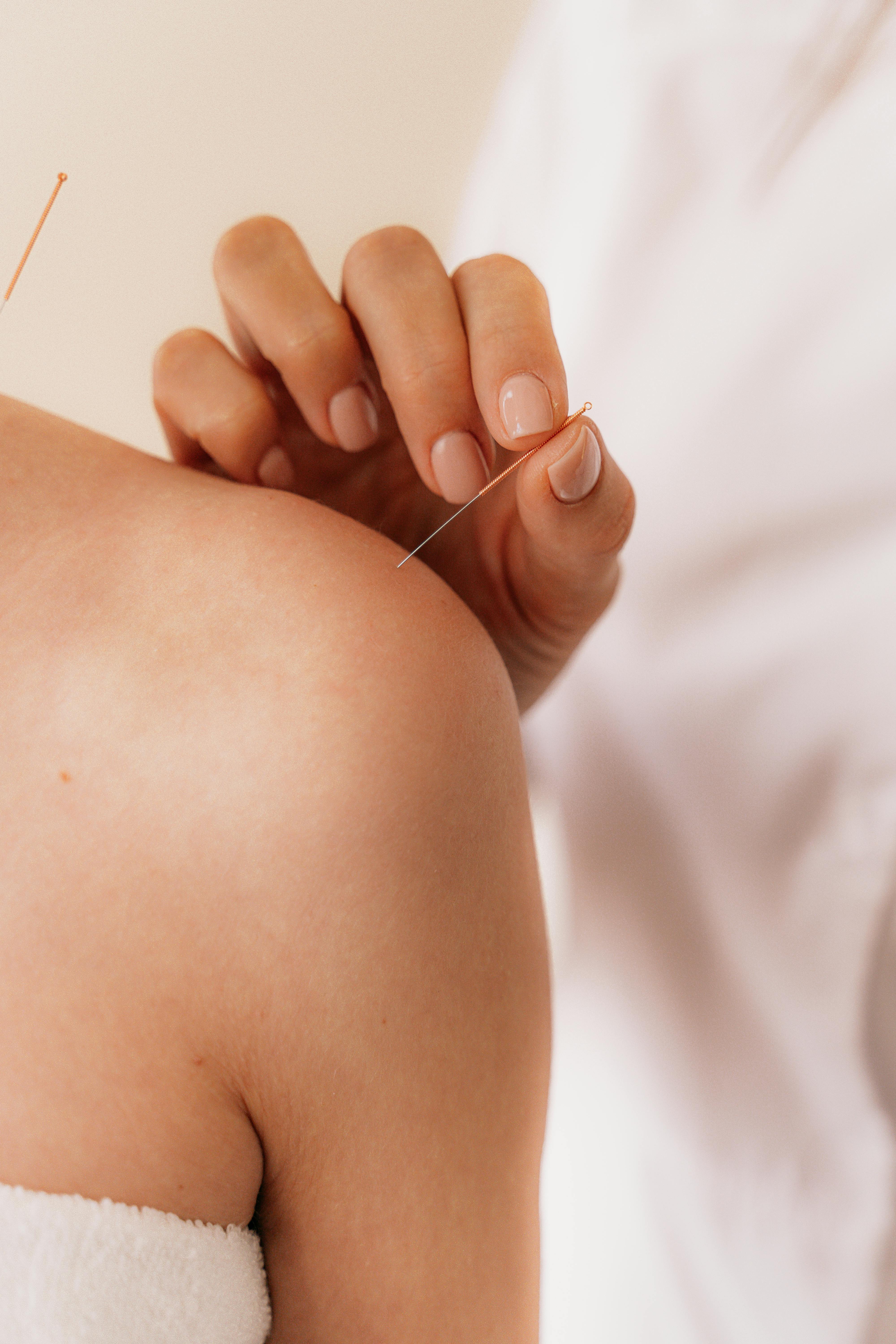What is Acupuncture? How does it work?
Acupuncture is an ancient therapy, which originated in China around 5000 years ago. It is the insertion of fine sterile needles at specific points of the body to regulate the flow of Qi (vital energy or universal life force) in order to restore the body's balance.
According to ancient Chinese thought, Qi is the essential substance constituting the universe. In our bodies, the Qi flows along the channels, specific pathways, also called meridians. If the Qi is not circulating freely, it creates imbalances that lead to diseases.
As per NIH's National Center for Complementary and Integrative Health; "Acupuncture is a technique in which practitioners insert fine needles into the skin to treat health problems. The needles may be manipulated manually or stimulated with small electrical currents (electroacupuncture). Acupuncture has been in use in some form for at least 2,500 years."[1]
"Practice of Acupuncture" means the use of oriental medical therapies for the purpose of normalizing energetic physiological functions including pain control, and for the promotion, maintenance, and restoration of health." 16 DE Reg. 434 (10/01/12)

What Can Acupuncture Treat? Is Acupuncture Effective?
Through holistic approaches, acupuncture optimizes the dynamic balance of body, mind and spirit, therefore can treat a wide variety of conditions.
Based on research, NCCIH[1] states that acupuncture may be helpful for painful conditions such as:
- Back or neck pain
- Osteoarthritis
- Headache and migraine
- Myofascial pain syndrome
- Sciatica
- Postoperative pain
- Chronic prostatitis/Chronic pelvic pain syndrome
- Irritable bowel syndrome
- Fibromyalgia
In addition, the data of 20 scientific studies has shown that the benignant results of acupuncture for painful conditions, except for neck pain, lasted for a year after the end of treatment.
In addition to pain conditions, there is evidence that acupuncture may help relieve:
- seasonal allergy symptoms
- stress incontinence in women
- nausea and vomiting associated with cancer treatment
It may also help relieve symptoms and improve the quality of life in people with asthma, but it has not been shown to improve lung function.
What does the WHO say?
In 2003, the World Health Organization, after an extensive review of scientific papers on acupuncture, published a list of conditions for which it recommends acupuncture. Here is the list:
- Adverse reactions to radiotherapy and/or chemotherapy
- Allergic rhinitis and hay fever
- Biliary colic
- Depression
- Dysentery, acute bacillary
- Dysmenorrhoea, primary
- Acute epigastric pain (peptic ulcer, acute and chronic gastritis, spasm)
- Facial pain
- Headache
- Hypertension or hypotension, primary
- Induction of labor
- Knee pain
- Leukopenia
- Malposition of fetus
- Morning sickness
- Nausea and vomiting
- Pain in dentistry (including dental pain and TMJ dysfunction)
- Renal colic
- Rheumatoid arthritis
- Tennis elbow
Moreover, there is an extensive list of conditions for which acupuncture was shown to have a therapeutic effect.

